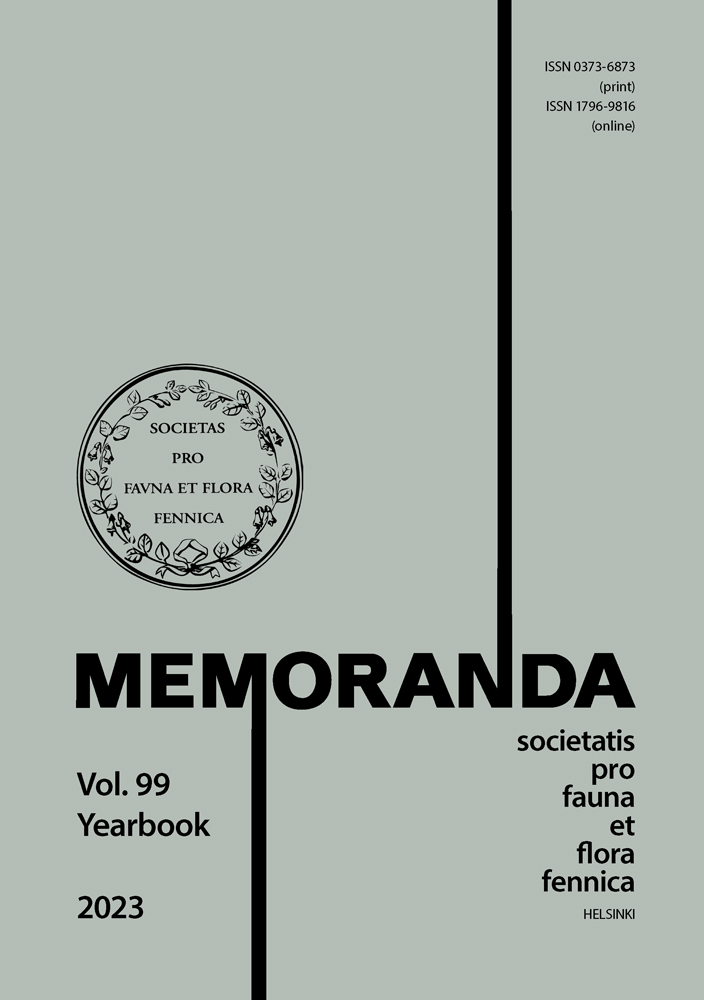Fredrik Emil Wolmar Elfving, Professor of Botany
Abstract
Elfving was professor of botany during 1892–1918 at the Imperial Alexander University of Finland and during 1919–1926 at the University of Helsinki. He was a member of Societas pro Fauna et Flora Fennica for decades and served in several important positions in the Society: as secretary in 1876–1878, as botanical curator in 1880–1892, as printing committee member in 1875–1878, 1880–1892, and 1892–94, as board member in 1894–1942, and as vice president in 1892–1911. Elfving wrote the Society’s centennial history in 1921 and the history of the Finnish Society of Sciences and Letters in 1938.
Elfving reformed the entire teaching of botany in Finland. During his inauguration year as professor, he published an extensive overview of the level of both students and teachers in botany. This became his agenda. Apart for plantgeography and taxonomy, Finnish botany used to be mainly applied. Only very few could devote themselves to basic research. He began lecturing in plant physiology, morphology, anatomy, vascular plant and cryptogam systematics, plant geography, and the history of botany.
Elfving conducted his most important plant physiological studies in Germany in the 1870s and 1880s, while acting as a guest researcher at the laboratories of the most prominent researchers in the field at the time. Elfving primarily published these results in The Finnish Society of Sciences and Letters series. The Imperial Alexander University laboratories at the time were not suitable for the purpose. Construction work on the new Botanical Institute began in 1901, and the main building was completed in 1903. It was only thanks to Elfving’s determined efforts that it was established.
Elfving had adopted Nylander’s antischwenderian ideas, and most of Elfving’s own laboratory studies tended to prove that lichens were not symbiotic. He also sought to prove that abiogenesis was possible.
In addition to earlier plant physiology experiments, Elfving conducted very significant studies on Finnish crops and the history of botany. These writings are significant source works.
As a person, Elfving was highly ambivalent. He was a very demanding teacher, but he also demanded a great deal of himself. His purpose was to awake national awareness of the high quality of our science, as the Russians had begun repressive measures in Finland. His career coincided with the period that is called The Golden Age of Finnish Art and Sciences, an era that ran from approximately 1880 to 1910. Elfving was well connected with the country’s cultural circles. On the other hand, he was very fond of the Swedish language and preferred Swedish-speaking students in teaching. This, in turn, caused bitter disputes between the Finnish- and Swedish-speaking university students and teachers. Still, as a whole, Elfving’s scientific efforts brought the country’s botanical sciences to par with the international scientific community.
Downloads
Published
How to Cite
Issue
Section
License
Copyright (c) 2023 Memoranda Societatis pro Fauna et Flora Fennica

This work is licensed under a Creative Commons Attribution 4.0 International License.




